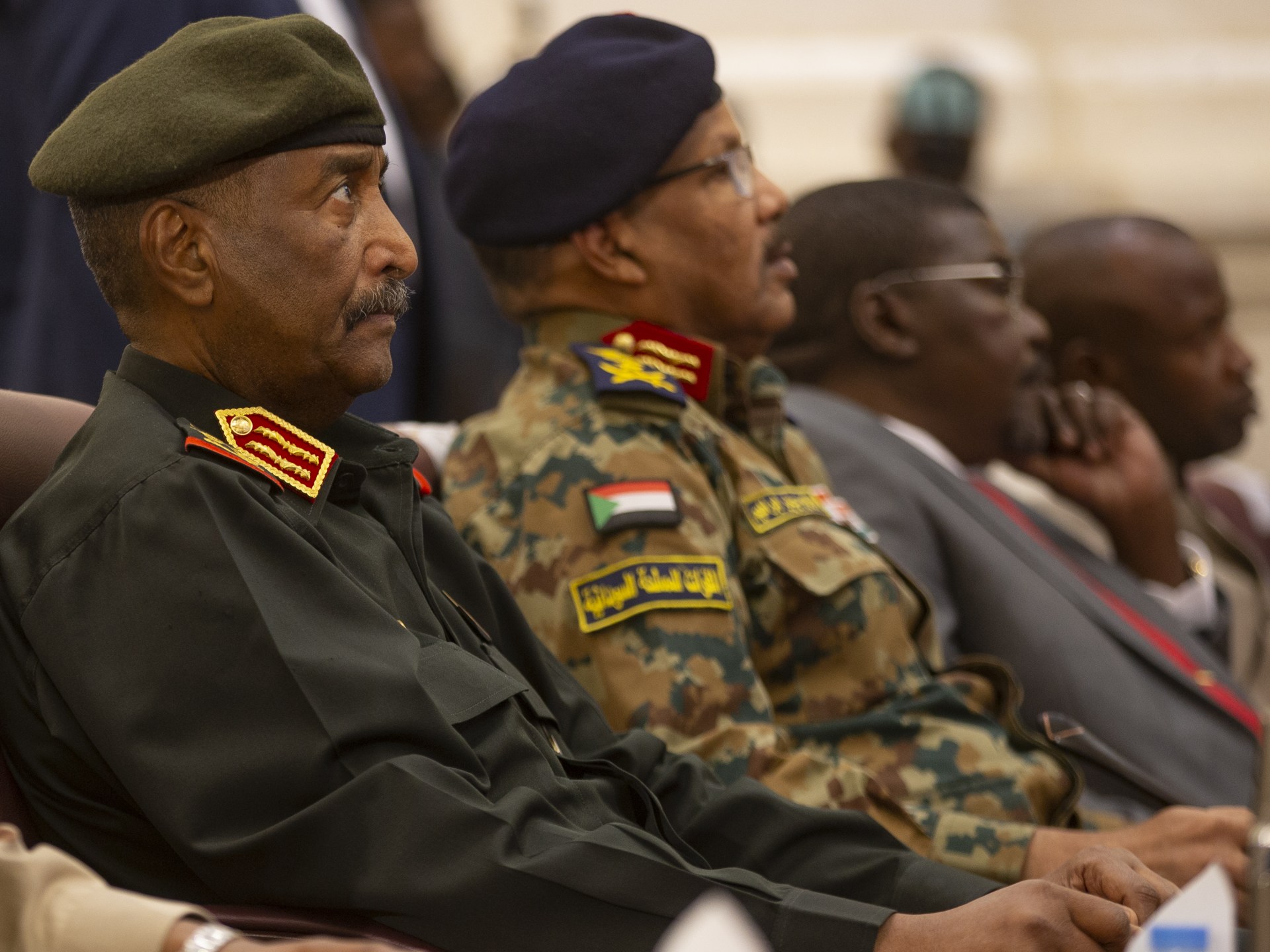Chairman of the Transitional Sovereignty Council, Army Commander Abdel Fattah Al-Burhan (Anatolia)
Member of the Transitional Sovereignty Council in Sudan, Assistant Commander-in-Chief of the Army, Ibrahim Jaber, said yesterday, Monday, that the armed forces will not be a party to any agreement with politicians during the transitional period, and that they are “the only national army, and will not accept any side.”
Jaber indicated - while addressing the officers and soldiers of the Second Division of the Sudanese Army in the city of Gedaref, east of the country - that there will be a transitional period led by a technocratic government that will undertake to arrange the affairs of the Sudanese people and prepare them for free and fair elections in which the people will determine who will rule them.
He explained that the war (between the army and the Rapid Support Forces) was a bigger plan than those who planned it, pointing out that there were external interventions and parties that caused the war, as he put it.
Jaber's statement comes a day after a statement by Yasser Al-Atta, a member of the Sovereignty Council and Assistant Commander-in-Chief of the Army, in which he said that the army will not hand over power to political or civilian forces except through elections, and that Army Commander Abdel Fattah Al-Burhan will be the head of state during the transitional period.
He added - in a speech before the leaders of the “National Forces Coordination” supporting the army in Omdurman - “There must be a transitional period in which the Commander-in-Chief of the Army is the head of the state and its supervisor, in which the security services participate, led by the army, police, and security.”
Settlement project
Al-Atta's statement came after the Communist Party, the National Umma Party, and the Arab Socialist Baath Party, in a joint meeting in Cairo, revealed a draft political settlement that would establish a comprehensiveness in which the army, the Rapid Support Forces, armed movements, and civil organizations would share power for 10 years.
Al-Burhan said last February that “if the war does not end, there will be no political process in Sudan.”
The international and regional community is pressing to approve a political process in conjunction with the ceasefire negotiations, but there are disagreements about who participates in the process and its timing.
An official in the Sovereignty Council believed that Al-Atta did not mean the army taking control of power, but rather supervising the transitional phase that follows the war, through a presidential council led by Al-Burhan and the formation of a government of non-partisan national competencies to run the country after a comprehensive Sudanese-Sudanese dialogue conference to determine the political future.
On the other hand, the leaders of the opposition forces criticized his statements and considered that the goal of the war was to keep the army in power and establish authoritarian rule in the country.
Since mid-April 2023, the Sudanese army, led by the head of the Sovereignty Council, Abdel Fattah al-Burhan, and the paramilitary Rapid Support Forces, led by Mohamed Hamdan Dagalo (Hemedti), have been waging battles that have left about 13,900 people dead and about 8.5 million displaced and refugees, according to United Nations data.
Source: Al Jazeera + Anatolia

